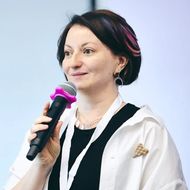Service Learning, Cybersport, and Worldview: HSE University at the World Youth Festival
The World Youth Festival held in the Sirius Federal Territory closed on March 6. A substantial team from HSE University was actively involved in the event. Here are some of the key projects and discussions at the WYF involving participants from HSE University.
Worldview and Russia's Image
HSE University's leading sociologists have been implementing a large-scale sociological research project 'Worldview and Russia's Image.' During the six days of the festival, HSE researchers conducted more than 150 interviews and ten focus groups with young people from across the world.
Foreign participants of the WYF often emphasised the difference between their prior ideas about Russia and the reality they encountered here. 'Before the festival, I had imagined Russia as a cold, gloomy country with sad and unfriendly people. When I arrived here, I saw a lot of smiling people, friendly volunteers always willing to help, and speakers who were open to conversation and exchange of experience,' this is just one example of a comment shared by a young man from Turkey.
Young people are generally friendly and outgoing. 'After the festival, hardly anyone will doubt that young people are willing to make friends, connect with others, and share their culture and knowledge with persons from other countries. We are open and would like to see this kind of international events to take place as often as possible,' stressed in his interview a young man who came from a neighbouring country to attend the festival.
Based on the survey results, the researchers will prepare an expanded report. Its public presentation is scheduled for spring 2024 as part of the next seminar of the HSE Laboratory for Youth Policy. Partner research groups will be able to join the presentation.
Useful Games and Benefits of Games
On March 4, HSE University and the Kruzhok Movement presented an international report entitled 'Useful Games and Benefits of Games: Challenges and Prospects of Useful Games and Cybersport.' The keynote speakers included Ilya Yaskov, HSE Deputy Vice Rector, and Aleksei Fedoseev, President of the Kruzhok Association.

Dmitry Zemtsov
'It seems important today to create an international interdisciplinary centre to conduct research on useful games. On the sidelines of the World Youth Festival, we have invited researchers to collaborate on this, and we encourage anyone interested to join in. Games are becoming a socio-pedagogical phenomenon that requires attention,' according to Dmitry Zemtsov, HSE Vice Rector.
The presenters discussed how games have long been used in education, research, and social development: simulators are often employed to mimic real-world situations, while gamification and game interaction design facilitate the development of innovative educational tools. Additionally, games enable individuals to generate and share their own immersive, unique experiences.
The speakers underscored several promising areas of research on useful video games, such as investigating the educational impact of games and evaluating their efficacy in educational settings, exploring how games can foster agency and translate it into proactive behaviour beyond the gaming environment, and finally, the potential tension between the enjoyment of gaming and the mandatory nature of education.
The researchers propose considering video games as a means of cultural and historical representation, awareness, and self-identification. Additionally, video games offer a promising avenue for cultivating a conscientious and responsible worldview and for shaping people's attitudes and moral consciousness without resorting to manipulation.
Universities and Social Change
On the sidelines of the WYF, the Association of Volunteer Centres (AVC) hosted a panel session entitled 'The Third Mission of the University and Service Learning: The Role of Universities in Social Change.'

Lyubov Kiriyenko
The session participants discussed current trends in project-based learning and shared their experience with implementing the service learning approach in various countries. The session was moderated by Lyubov Kiriyenko, Advisor to the HSE Vice Rector.
Alina Yashina, Deputy Chair of the Council at the Association of Volunteer Centres, called the participants' attention to the reality that in addition to research and training of professional cadres, universities today play a significant role in human development; therefore, a modern university should offer its students every opportunity to positively impact society and the world around them.

Alina Yashina
We conducted a survey in collaboration with the Your Move Project team here at the festival to find out how willing and prepared young people are to get involved in social change projects. Our findings are encouraging: more than 88% of our young respondents are prepared to participate in such projects, while more than 80% are willing to proactively initiate and implement socially significant projects. Today, our country has entered a new stage in the development of the service learning approach. Both components of this phrase are important: "learning" refers to applying one's professional skills in projects and practical activities, whereas "service" refers to doing so in pursuit of positive social change,' according to Alina Yashina.
Dmitry Zemtsov, HSE Vice Rector, discussed the formats in which HSE University implements the service learning approach and presented the results from a survey that the university administered to the participants of the pilot launch last year. According to the survey, after the pilot launch of the methodology, 72% of students reported increased civic engagement, 65% learned about the possibility of working with NGOs and community organisations, and 60% felt equipped to address social issues on their own and change the world for the better.

Magdalena Alejandra Gaete Sepulveda
Magdalena Alejandra Gaete Sepulveda, Head of the Laboratory for Reputation Management in Education at the HSE Campus in St. Petersburg, emphasised the important objective of scaling up the service learning practices to include the BRICS+ countries. She noted that with their strong emphasis on students, it is crucial for today's universities, in addition to producing competent professionals, to ensure that their graduates are responsible members of society. Additionally, Magdalena Gaete outlined a number of essential research questions to address in studies on service learning, including how to integrate students' academic interests with service learning and how to prepare leaders capable of service without becoming discouraged over time.
Speakers from various countries shared their experience with implementing project-based learning. Asma Al Fori, research fellow at Hamad bin Khalifa University, spoke about volunteerism and its integration into the educational process in Qatar; Amy Yeo Chu May, Professor at TARUC and expert of the City Human Potential Ranking, shared the experience of Malaysia, and Juan Fernando Córdoba Marentes, Vice Rector at Universidad de La Sabana, discussed the networking of universities and social partners in Colombia.

Olga Petrova
Olga Petrova, Deputy Minister of Science and Higher Education, summarised the session by saying, 'The mission of service is a key value that we already hold, and it is being integrated in education starting from the school level. School students then go on to university, while maintaining their interest in helping others and being creative. Having introduced the service learning module in universities, we can now see that this has been the right thing to do, since students are getting involved in relevant activities even more. The image of a university graduate today is that of a caring person with a big heart who is capable and willing to change the world around them and feels responsible for their country. This year, we plan to create a project office for expanding service learning to Slavic universities abroad, to university campuses in other countries, because we consider the pilot project successfully completed.'

